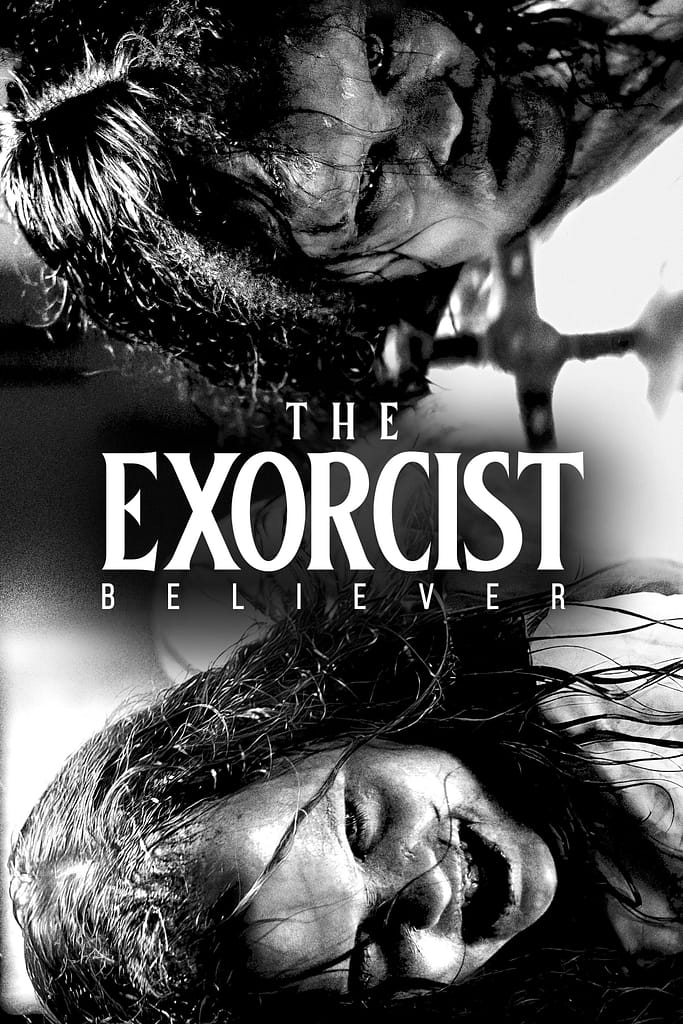My quick rating – 5.0/10. The Exorcist: Believer is the kind of horror sequel that feels more like a contractual obligation than a passion project. Directed by David Gordon Green, this entry attempts to revive the legendary Exorcist franchise with a new tale of possession and parental desperation but ultimately lands as a middling, formulaic flick that fails to justify its resurrection.
The story follows Victor (played by Leslie Odom Jr.), a single father still grieving the loss of his wife, now raising his daughter Angela on his own. When Angela and her friend disappear for three days and return with no memory of what happened, it quickly becomes clear that something sinister has taken hold. Their disturbing, synchronized behavior echoes the infamous MacNeil case from fifty years ago—yes, that exorcism—and this paves the way for the film’s big nostalgic pull: the return of Ellen Burstyn as Chris MacNeil.
Seeing Burstyn reprise her role is a genuine treat, especially for fans of the 1973 classic. She brings gravitas and warmth to the film, even if the script doesn’t give her nearly enough to do. In fact, this is a recurring issue throughout Believer—capable performances are let down by shallow material. The makeup on the two possessed girls is solid and effectively eerie, but the scares? Minimal. Tension? Lacking. It’s more of a slow-burning procedural that builds up—predictably—to the final exorcism showdown.
And that’s the problem: it all feels too safe, too by-the-numbers. The film relies heavily on the familiar “how far will a parent go” trope, but never pushes into deeper or more disturbing territory. The ending does throw in a bone for longtime fans, and the use of Mike Oldfield’s “Tubular Bells” over the credits is a welcome nod, but these are fleeting moments of nostalgia in an otherwise forgettable package.
What The Exorcist: Believer seems most guilty of is using its legacy characters and franchise name as a way to cash in without doing the thematic or cinematic heavy lifting that made the original such a cultural milestone. It doesn’t have Friedkin’s boldness, Blatty’s philosophical weight, or even a memorable moment that could linger past the credits.
Out of respect for the original and its late director William Friedkin, this could easily be rated more harshly. But there’s enough competent acting, decent production design, and a serviceable (if predictable) arc to call it passable. Still, it’s a far cry from anything worthy of The Exorcist name.

Verdict: A by-the-book horror sequel with a few nostalgic sparks, but mostly a hollow echo of past terror.
Log in to manage Simkl watchlist



